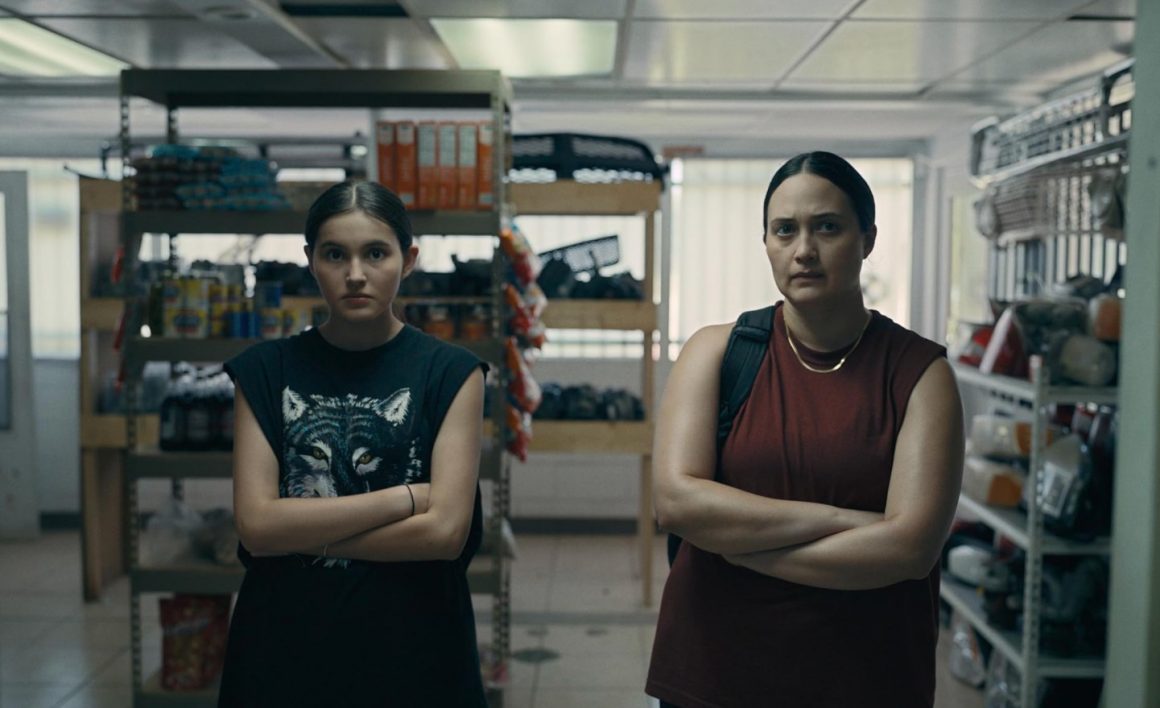
Film Review: Fancy Dance
By Jyotirmoy Gupta, July 26 2024—
Fancy Dance is an American drama that first premiered at the 2023 Sundance Film Festival and later had a limited theatrical release in 2024. I was lucky enough to catch it when it premiered at Plaza Theatre in Calgary, known for showcasing independent cinema. Fancy Dance starts off on the pretext of a thriller but slowly turns into an emotional churn that doesn’t end like your typical thriller. The film tries to hook the audience with the allure of solving a mystery yet soon lets go of that rope. All this is not the failure of the filmmaker but her intention. Through her film, director Erica Tremblay questions the treatment of the Native Indian community by depicting life on the Seneca-Cayuga reservation. The film lingers on the lines of social documentary. It is about hope and resilience, although it slams you with waves of hopelessness from time to time.
The depiction of the Indigenous community in a typical Hollywood film often comes in black and white. They often play into the stereotypes associated with the community and seldom do a deep dive into their experiences. But Fancy Dance is not your typical Hollywood film. Tremblay herself is from the Seneca-Cayuga nation and the story is very close to home. She paints her characters in beautiful gray tones and doesn’t glorify any aspect of life on the reservation. Instead, she asks you to empathize with the characters.
The film starts with Jax, played by Oscar nominee Lily Gladstone, bathing near the river. As an onlooking white fisherman is distracted by Jax, Roki, her 13-year old niece, steals the truck’s keys from the fisherman’s basket and they ride off into the sunset. Starting the film with a petty theft scene, the film almost straight on addresses the social stigma related to the Indigenous community and crime. But as the film moves forward, we come to realize that these petty crimes are coping mechanisms to live in a society that undermines the existence of their culture. It comes from a place of hurt where the community has not recovered from years of systematic oppression and forced cultural assimilation.
Soon, the police come knocking at Jax’s door informing that she needs to fill a form to keep custody of Roki. Roki’s mother, Tawi, has been missing for two weeks. This scene is a sad reflection of a well-documented reality that exists outside the frame of the film. Later, the police come back saying that they have reassigned Roki to stay with her maternal grandparents as they deemed Jax an unfit guardian due to her criminal record. This starts a chain of events that leads to close brushes with the law. Jax, getting little help from the police, takes matters into her own hands and turns detective. An innocent Roki, who is waiting for her mother to return so that she can attend the annual powwow, joins her aunt in search for her mother.
The film is filled with nuances that highlight the social dynamics of the indigenous community. When Roki temporarily goes to her grandparents’ house, her grandmother very lovingly gives her a pair of ballet shoes that are near and dear to their family history. She hopes to comfort Roki with this gesture and asks her to try this new form of dance. The grandparents are not evil, they want to comfort Roki in a way they seem fit, but it does show the cultural bias inherent in our society. Roki very respectfully declines her grandmother’s gift and says she will dance with her mother at the powwow.
We see Tawi only on missing person posters and know her through the little snippets people share about her. Her absence has a strong presence in the film, and as we reach towards the end we come to terms with the fact that she will not be found. Like many others before her, she will be forgotten and only remembered as a statistic. Lilly Gladstone, who was denied a deserving Oscar, gives a stellar performance that cements her place as one of the most versatile female actors of contemporary cinema. Isabel DeRoy-Olson, who plays Roki, shines alongside Gladstone and is a talent to keep an eye on. One of the best scenes of the film is when Roki and Jax talk in their native tongue in front of a white police officer, almost reclaiming their language in front of their oppressors.
The name Fancy Dance speaks to the cultural euphemism still used to describe indigenous culture. Tremblay has been very vocal about how she struggled to find distribution for the film and had to ultimately sell it to OTT platforms. Her experience proves the point put forward in the film that our society still has a long way to go. Tremblay ends the film at the powwow, giving our characters a glimmer of hope and reminding us about the importance of community and culture.
